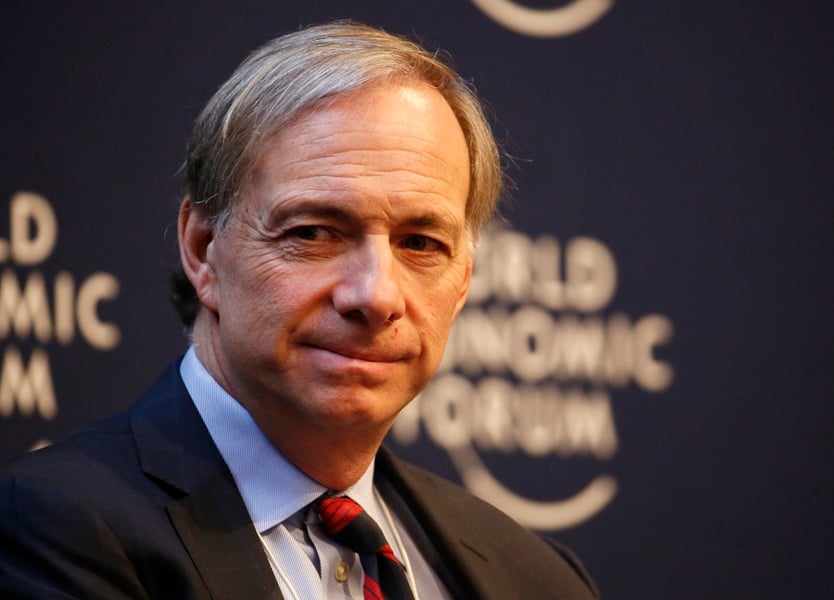

Ray Dalio stressed the importance of diversification in a Reddit Ask Me Anything event Tuesday and said that a “flood of money and credit” was unlikely to recede.
“Assets will not decline when measured in the depreciating value of money,” the billionaire investor told users of the discussion network who asked for his perspective on where financial markets are headed. “I believe that with the enormous amount of debt and money that has been created and will be created in the future, the most important thing to pay attention to is the value of debt and money relative to the value of assets and other currencies.”
Dalio added that he saw no reason that stocks couldn’t trade at 50 times earnings and recommended “smart diversification” among asset classes, currencies and countries.
• “My fear, which is turning into a reality, is those countries that are working the hardest are also increasingly finding ways to work the smartest, which is hurting the competitiveness of those who are working less hours and less efficiently.”
• “What is most important is inventiveness — the capacity to get much more out of an hour’s work.”
• “I think that Bitcoin (and some other digital currencies) have over the last ten years established themselves as interesting gold-like asset alternatives, with similarities and differences to gold and other limited-supply, mobile (unlike real estate) storeholds of wealth. So it could serve as a diversifier to gold and other such storehold of wealth assets.”
• “As far Bitcoin relative to gold, I have a strong preference for holding those things which central banks are going to want to hold and exchange value in when they are trying to transact.”
• “The Chinese leadership is extremely knowledgeable in the lessons of its history and how things work. What I would convey to you and my fellow Americans is that they have a lot of internal disagreement and processes for dealing with it well within the government, so it does exist. Whether or not it is more productive to have the entire population in those discussions is a matter of opinion.”
• “It is a very civilized society that is doing extraordinarily well and is not consistent with the stereotypes that one might believe are true. It is by no means perfect (nor is any other country) and should be open-mindedly assessed based on evidence, rather than emotionally reacted against based on derogatory characterizations.”
• “I worry that we are our own worst enemies and/or that we collectively aren’t willing to make the revolutionary changes that are needed to be on the best path for dealing with our circumstances. However, it is certainly possible that we can get on that path.”
• “I think that between now and the mid-term elections in 2022, and between then and the next presidential election in 2024, we will face critical choices both domestically and internationally that will define the likelihood of having an internal and/or external existential conflict.”

While industry statistics pointing to a succession crisis can cause alarm, advisor-owners should be free to consider a middle path between staying solo and catching the surging wave of M&A.

New joint research by T. Rowe Price, MIT, and Stanford University finds more diverse asset allocations among older participants.

With its asset pipeline bursting past $13 billion, Farther is looking to build more momentum with three new managing directors.

A Department of Labor proposal to scrap a regulatory provision under ERISA could create uncertainty for fiduciaries, the trade association argues.

"We continue to feel confident about our ability to capture 90%," LPL CEO Rich Steinmeier told analysts during the firm's 2nd quarter earnings call.
Orion's Tom Wilson on delivering coordinated, high-touch service in a world where returns alone no longer set you apart.
Barely a decade old, registered index-linked annuities have quickly surged in popularity, thanks to their unique blend of protection and growth potential—an appealing option for investors looking to chart a steadier course through today's choppy market waters, says Myles Lambert, Brighthouse Financial.
